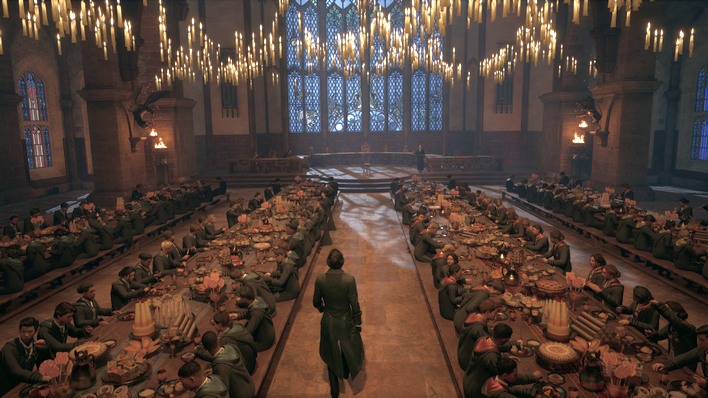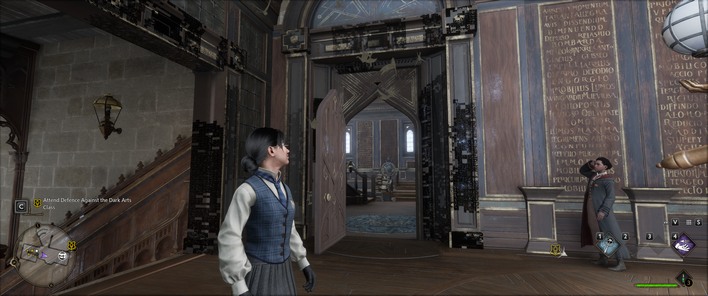Hogwarts Legacy Runs Like The Fat Friar, Patches Desperately Desired
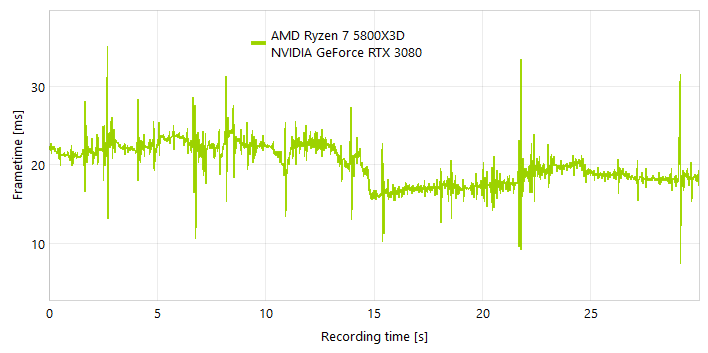
That doesn't look so bad, does it? A little spiky at times, but overall the frame-rate hovers around 50 FPS, which is eminently playable. That's using a GeForce RTX 3080 at a 2560×1440 resolution without upscaling, and the game set to "Ultra" settings with ray-tracing enabled. Quite acceptable, if very demanding. Now, take a look at this graph:
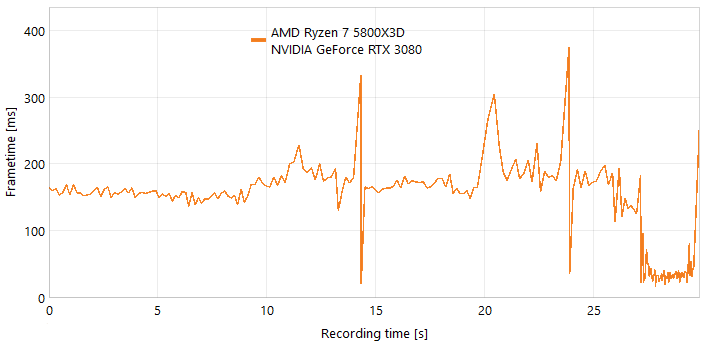
The whole game is like this. Traversing the world, you will abruptly find your smooth gameplay interrupted by periods of unbelievably slow and stuttery performance. Framerates dip (presumably due to loading) when you enter a new area, understandably, but it also can happen for no apparent reason at all. Opening your menu can cause framerates to rise, but then closing it can make things even worse than before.
Lest you think faster hardware is the answer, here's another capture for you:
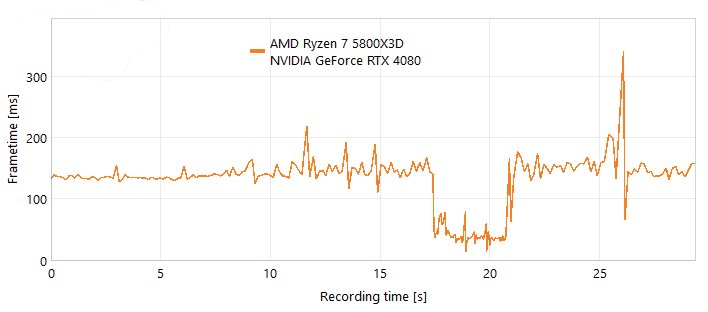
This is the same system, now with a GeForce RTX 4080. The brief dip in frame-times there—correlated to a rise in frame-rate to around 25 FPS—came about after nearly a minute of jogging around at a smooth-as-shattered-glass seven frames per second, and as you can see, it didn't stick around.
This isn't a CPU limitation issue; both whole CPU utilization and per-thread utilization remained quite low. GPU usage was on the ceiling the entire time. It isn't a video RAM limitation, either; while the game likes to allocate all of the available video memory for itself, the tools that we have didn't indicate it was ever using more than 15GB of our GeForce RTX 4080's 16GB.
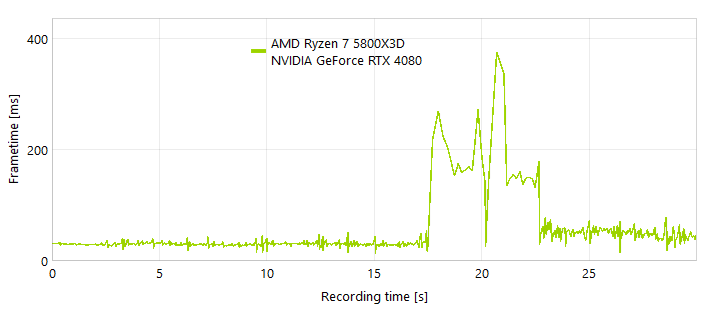
We have mapped out a few areas that are known to produce poor performance consistently, and a few areas that generally run reasonably-well. However, sometimes those aren't even reliable. The graph above is from a run through of one of our "smooth-performing" areas. While jogging down the Hogwarts corridor, the framerate abruptly tanked, with performance falling as low as 3 FPS.
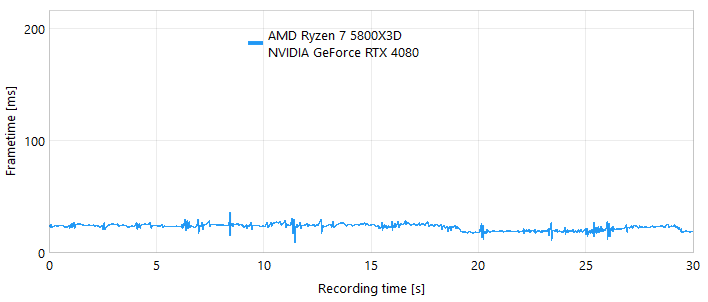
Here's what a normal jog through that corridor looks like. Note that this kind of performance is only available once you've passed through an area the first time; despite that the game performs a lengthy shader compilation step every time you launch it, it still seems to have significant shader compilation stuttering struggles, as new areas are always slow.
We've also observed significant texture corruption on every GPU we've tested it on. It's not particularly common, with one exception—using ray-tracing on Radeons breaks most transparent objects, especially trees—but it happens for unknown reasons. We're using an open-air test bench, so temperatures are low as you'd expect.
Overall, while we are quite taken with Hogwarts Legacy as a video game, it can be a real pain to play on the PC. You can disable ray-tracing for improved performance, and you can use upscaling (via DLSS 2, FSR 1 or 2, and even Intel's XeSS) to lighten the load on your GPU, but nothing we've tried will actually make the game run with any degree of consistent smoothness -- yet.

